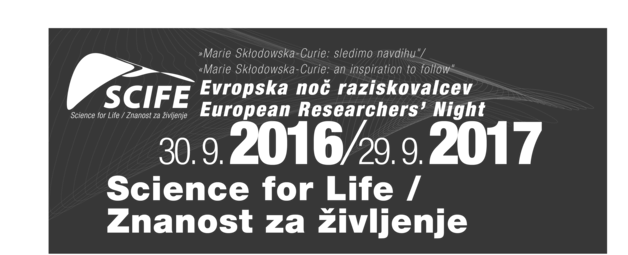Research in the health sciences can be fun
printLocation: Faculty of health sciences
Time: 9:00 - 16:00
Stations:
Station 1: Understanding aging and older people through simulations
Aging includes physical, psychological and social changes. We often associate ageing with decline in capacity and autonomy, loss of social networks and social roles. Aging is primarily an adaptive process which through the mechanisms of selection, optimization and compensation allows individuals to maintain relative autonomy and quality of life. Knowledge about aging and understanding of changes associated with aging, adaptation strategies, roles of family members and community, contributes to more positive attitudes towards age and older people, to intergenerational solidarity and cooperation. With the help of simulator you will try to and simulations. At station 1 you will try to understand the perspective of older people through the help of elderly simulator.
Station 2: Rehabilitation
 Walk with crutches. Sports and movement activities.
Walk with crutches. Sports and movement activities.
Station 3: How full is my bowl?
The workshop participant will investigate how colour, size and form of the dish in which the food is served influence our perception of portion size. We will introduce flavour and discover, how information from different senses influence our perception of food.
Station 4: How to plan balanced meal?
Balanced meals means choosing food from different food groups – dairy, vegetables, fruits, grains and protein. The new MyPlate icon is a good representation of a balanced meal because all five food groups are included. In the station 4 we will plan balanced plate with food model kits.
How much sugar is in your drink and many other questions about healthy food will be discussed.
Station 5: Microorganisms and hand hygiene
 Microorganisms are everywhere around us. They have an important role as a part of natural microbial flora, inhabiting the skin and mucous membranes of healthy people. While permanently present microorganisms protect us, those that are only transiently present can cause some serious infections. Hans hygiene is therefore one of the key factors that can prevent the spread of pathogenic microorganisms. The efficiency of hand washing will be compared to the use of disinfectant. The growth of microorganism in laboratory environment and how individual cells look under the microscope will be demonstrated.
Microorganisms are everywhere around us. They have an important role as a part of natural microbial flora, inhabiting the skin and mucous membranes of healthy people. While permanently present microorganisms protect us, those that are only transiently present can cause some serious infections. Hans hygiene is therefore one of the key factors that can prevent the spread of pathogenic microorganisms. The efficiency of hand washing will be compared to the use of disinfectant. The growth of microorganism in laboratory environment and how individual cells look under the microscope will be demonstrated.
Station 6: Fun with chemistry
Chemistry is a fascinating science, full of unusual trivia! The mission of the fun with chemistry is to ignite, inspire, and motivate younger people to develop a love for learning and exploration in teh sciences. These objectives will be accomplished by the development of new compelling experiments tho prove that chemistry is relevant, fun, and entertaining.
Station 7: Introduction to simulations in health care with e-learning and augmented reality
 Simulations based on e-learning and augmented reality, which allow the acquisition of critical thinking skills, will be presented.
Simulations based on e-learning and augmented reality, which allow the acquisition of critical thinking skills, will be presented.
Station 8: How to measure Body Composition?
Bioelectrical Impedance Analysis is a technique used for estimating body composition. With this technique you can get a quick overview of the body weight, body fat percentage, body water percentage, muscle mass, bone mass and visceral fat rating.
Additional information:
 Anketa - podoba raziskovalcev
Anketa - podoba raziskovalcev
About the project
Researchers night 2017
Gallery
This European Researchers' Night project is funded by the European Commission under the Marie Skłodowska-Curie actions


